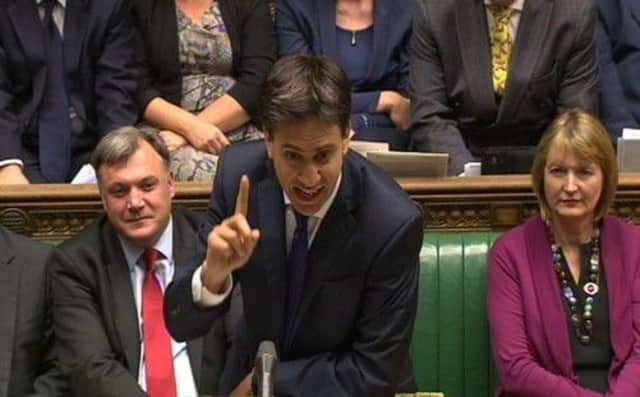Leaders: Lower taxes will ease energy bill burden


Previous statements by Prime Minister David Cameron that he would address the concerns of consumers by changes designed to promote competition have so far yielded little by way of change, while Labour leader Ed Miliband has proposed a 20-month freeze on energy bills while it puts in place a new regulatory regime.
Yesterday’s announcement has already brought calls from Citizens Advice and fuel poverty campaigners for a freeze on energy prices this winter. The SSE announcement follows inflation-busting increases by the big six energy companies of between six per cent and 10.8 per cent last autumn and it is bound to intensify public anger over relentless rises in the cost of household energy well above the rate of inflation. But at the heart of the problem is an uncomfortable truth, that the continuing rises in energy costs are outwith the ability of companies to control. SSE argues that the increase reflects the higher costs of buying wholesale energy – rises in the world-wide price of gas – paying to deliver it to customers’ homes and government levies. And these levies, it points out, have been endorsed by all the major political parties. For a typical “dual-fuel” customer wholesale energy prices have risen by four per cent, the costs of paying to use delivery networks has climbed by 10 per cent and government levies are 13 per cent higher. According to industry regulator Ofgem, up to 11 per cent of a customer’s bill goes on government programmes to save energy, reduce emissions and tackle climate change.
Advertisement
Hide AdAdvertisement
Hide AdMany have argued that the cost of the switch to renewables should be funded out of general taxation rather than through fuel bills. But one way or another, households will still end up paying. So far the Prime Minister’s approach of encouraging competition, promoting more switching between suppliers and promised legislation to ensure customers are offered the lowest tariff has failed to convince, while Mr Miliband’s proposal is a foredoomed attempt to take on movements in world-wide prices and somehow protect the consumer against the unavoidable consequences of government policy on renewables.
There is much that can be done to improve home insulation and fuel efficiency and existing programmes in this area must continue. But the most effective approach, not just to rising energy bills but to the wider phenomenon of “the cost of living crisis” is to reduce the burden of tax upon the population. If governments are serious about protecting households from the hardships of increasing fuel costs then this would be a simple and direct way to actually leave more money in their pockets.
Let older heroes have role in relay
Wanted: 4,000 “local champions” to carry the Commonwealth Games baton when it returns to Scotland next year after its 123,000-mile journey round the 70 nations and territories of the Commonwealth.
The baton will be carried the length and breadth of Scotland, starting in Edinburgh and visiting every local authority before arriving in Glasgow on 20 July, three days before the opening ceremony at Celtic Park.
It will be a great advertisement, of course, for the imminent start of the Games and help focus national attention on the occasion. But more important, how appropriate and inspiring that thousands of Scotland’s local heroes – voluntary workers, positive role models and those who have made a contribution to their local community – should have their services recognised by the honour of carrying the baton for a stretch of the way.
Last year’s Olympic torch that went around the UK played a significant part in drawing attention to the Games in a positive and inclusive manner while enabling the national spotlight to fall on those who had helped to promote sport and exercise in their local communities.
Young people will of course be to the fore. But the search for local champions should not overlook older people and the lifetime contribution they have made towards Scottish life. They may be allocated only a short distance. But how fitting it would be for at least some of those who were mere striplings in 1958 to have the opportunity to represent the generational bond. Nominations can be made online and there should be no shortage of those who deserve a place in this great national relay.